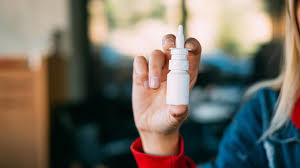Imagine struggling to find the right words or to complete a simple sentence. For many with aphasia, this is a daily challenge after a stroke or brain injury.
Fortunately, brain injury rehabilitation offers hope for recovery, helping individuals rebuild language and communication skills over time. But what exactly makes these aphasia therapy activities effective?
And how do they impact the brain’s healing process? This article will explore powerful exercises that promote progress.
Discover strategies that can make a real difference on the journey to recovery! Keep on reading!
Naming Objects for Word Recall
Naming everyday things can be an important part of therapy for people with aphasia. People with aphasia can slowly improve their memory and ability to speak by practicing everyday things.
Beginning with easy words like “pen” or “cup” can help them get used to talking over time. Doing this exercise regularly can also help you feel better about yourself and recognize words more quickly.
Sentence Formation Exercises
Putting words together to make sentences helps people move from single words to full thoughts. A therapist might start with simple phrases like “I want water” and add more complex ones over time.
Using pictures or cue cards as visual aids help people understand better and supports the brain pathways needed for language recovery. Sentence formation exercises help people with aphasia communicate more clearly and give them a huge confidence boost.
Picture Descriptions
Using words to describe pictures is a fun way to improve your vocabulary and improve your communication. Therapists may use pictures of everyday places, like parks or restaurants, to get people to describe them.
It helps with both building your vocabulary and speaking out loud. This activity is also interactive because family members can take part, making the space more welcoming.
Word-Association Games
Playing word association games can help your brain make stronger connections. A therapist might start by making simple connections, like one between “sun” and “hot.” These games can get harder over time, which is good for brain flexibility.
People with mild to moderate aphasia will enjoy this activity, and it can be changed based on how well they do. Word-association games are fun and good for you, and they help people talk to each other more clearly.
Reading Aloud
Reading out loud is one of the best ways to improve your fluency during speech therapy exercises. It helps people hear the rhythm and flow of language, which makes it easier to see how words fit together.
Clear articulation and pacing can be helped by practicing every day, even if it’s just a few sentences. People with aphasia can feel more confident when they talk because reading out loud can improve their speech.
Writing Practice
Writing is an important skill that helps people say what they want to say, even when speaking is hard. People with aphasia can improve their written expression by doing simple writing tasks like making lists or writing down names.
You can start with simple writing exercises and add more difficult ones as your skills improve. It’s a great way to keep track of progress because each try shows both what went well and what could be done better.
Flashcards
Flashcards are a great way to practice remembering important words and phrases quickly. The person can make these cards fit their needs by focusing on everyday words they use.
By using flashcards regularly, people can improve how quickly they can remember things and feel more confident. You can use flashcards anywhere and they are easy to carry. Flashcards are an easy and organized way to improve your language and memory.
Repetition Drills
One of the best ways to help people with aphasia improve their memories is to do repetition drills. By repeating words or phrases, you make the connections between them stronger in your brain.
To make it more useful, therapists may use everyday words or phrases that are relevant to the person’s life. Since repetition drills are easy to do quickly, they are great for daily practice.
Role-Playing Situations
Role-playing games help people improve their communication skills by simulating real-life situations. For example, you could order food at a restaurant, ask for directions, or just start a conversation.
Role-playing helps people feel more confident and gets them ready for real-life interactions. It’s a safe place to practice where you won’t be judged, so you can make mistakes and learn from them. Role-playing helps with building vocabulary, making sentences, and understanding social cues.
Categorization Games
By making people put things into groups, categorization games improve language and thinking skills. Putting things into groups, like foods or animals, could be part of this activity. This will help you make logical connections.
Sorting things into groups is an important mental skill that helps you find words and keep things in order. It’s interactive and easy to do, whether with physical items or through apps like the Constant Therapy app. Categorization games make language fun and can be done with friends or family.
Conversational Practice
For social confidence, it’s important to have regular conversations. Therapists and their clients often have short, structured talks about everyday things like family or hobbies.
This practice gives people a chance to improve their speaking skills in a calm environment. Talking to other people improves your ability to remember words, put together sentences, and speak quickly.
Conversation practice makes people feel better about their confidence, which makes them feel more at ease in social settings. It’s an important thing to do to promote tools that help people communicate better and to encourage social interactions.
Memory Games
Memory games are fun, and they’re also good for improving your brainpower. These games help you remember words, phrases, or sequences, which makes your memory better over time.
To keep the exercise interesting, therapists might use word pairs or card games. Memory games keep the brain active, which is good for both language and cognitive functions that are needed for recovery. Depending on the person’s skills, they can be changed to fit different levels of difficulty.
Unlock Progress with Effective Aphasia Therapy Activities
Aphasia therapy activities can change the way people talk to each other, which can help them recover their language. Every activity, from easy word games to planned conversations, helps kids feel more confident and independent.
Being consistent is important; if you practice every day, you can make real progress. Language and social skills can get better over time with the right help and tools. Take part in these activities to make an impact that lasts.
Did you like this guide? Great! Browse our website for more!




